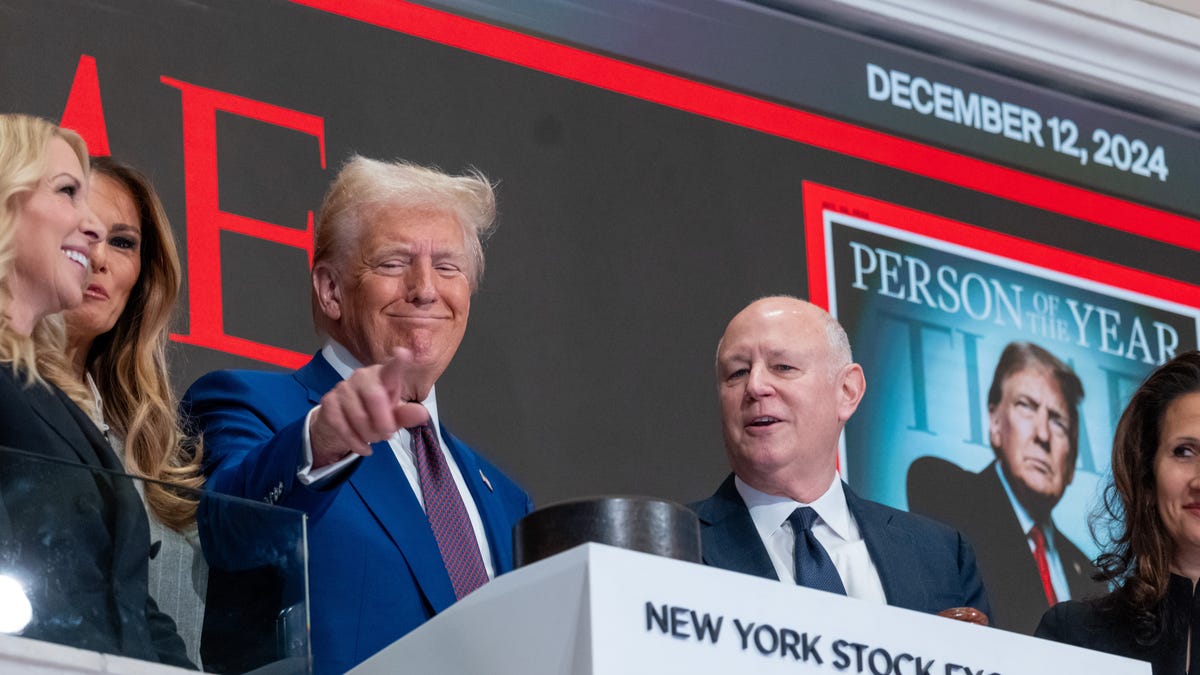Introduction
In a groundbreaking move that is set to reshape both the technology sector and political landscape, SoftBank has announced an ambitious strategy to invest $100 billion in artificial intelligence (AI). This investment plan has garnered significant attention not only for its scale but also for its potential alignment with the interests of former President Donald Trump. As SoftBank positions itself at the forefront of AI innovation, this initiative raises questions about its implications for U.S. economic policies, the tech industry, and global AI advancements.
The Scale of SoftBank’s Investment
SoftBank, a Japanese conglomerate known for its aggressive investments in technology, is making a bold statement with its proposed $100 billion AI investment strategy. This unprecedented financial commitment is aimed at accelerating the development and deployment of AI technologies across various sectors. The plan underscores SoftBank’s belief that AI will play a pivotal role in the future of business and society.
The investment will likely focus on several key areas:
- Startups and Emerging Technologies: SoftBank is expected to channel funds into promising AI startups, fostering innovation and bringing groundbreaking technologies to market.
- Partnerships with Tech Giants: Collaborations with established tech companies may be a part of the strategy, leveraging their expertise and market presence.
- Research and Development: Significant resources could be allocated to R&D initiatives to advance AI capabilities and applications.
Political Context and Alignment with Trump
SoftBank’s investment strategy is not merely a business maneuver; it is also steeped in political context. The involvement of former President Trump in this narrative adds a layer of complexity. Trump has been vocal about his vision for American technology leadership and the competitive edge AI can provide. Aligning with Trump could serve SoftBank’s interests in navigating regulatory landscapes and fostering favorable economic policies.
Furthermore, Trump’s administration had previously emphasized the importance of AI in maintaining U.S. dominance in global technology. By positioning itself as a key player in AI under the aegis of Trump, SoftBank could potentially influence U.S. economic policies that favor technological advancement and investment.
Implications for the U.S. Economy
The implications of SoftBank’s investment in AI could be profound for the U.S. economy. AI technologies have the potential to revolutionize various industries, from healthcare to finance, manufacturing to retail. As companies increasingly integrate AI into their operations, we may see:
- Job Creation: While AI is often associated with job displacement, it can also create new roles and opportunities in tech development, data analysis, and AI management.
- Increased Productivity: AI can enhance efficiency and productivity across sectors, leading to economic growth and potentially higher wages in tech-related fields.
- Global Competitiveness: A significant push in AI could bolster the U.S.’s standing in the global tech arena, positioning it as a leader in innovation.
Challenges and Concerns
While the prospects of a $100 billion AI investment are enticing, several challenges and concerns accompany such a massive financial commitment.
- Ethical Considerations: The deployment of AI technologies raises ethical questions surrounding privacy, surveillance, and bias. As SoftBank invests heavily in AI, addressing these concerns will be crucial to maintaining public trust.
- Regulatory Hurdles: The U.S. government may impose regulations on AI development and deployment, particularly concerning data usage and consumer protection. Navigating these regulations will be essential for SoftBank’s strategy.
- Market Saturation: The tech industry is becoming increasingly competitive, with numerous players vying for dominance in the AI space. SoftBank will need to identify unique opportunities to stand out.
Global Perspective on AI Investments
The global landscape for AI investments is changing rapidly. Countries like China and the European Union are heavily investing in AI research and development, aiming to compete with the U.S. in this critical sector. This international competition adds urgency to SoftBank’s investment strategy, as the U.S. must maintain its technological edge.
China, for example, has made AI a national priority, investing billions into research and development. This creates a competitive environment where U.S. companies may feel pressured to innovate quickly and effectively. SoftBank’s significant investment could be a strategic move to ensure that the U.S. remains at the forefront of AI technology and innovation.
The Role of Partnerships and Collaborations
Successful execution of SoftBank’s AI investment strategy will likely hinge on strategic partnerships and collaborations. By aligning with established tech firms, research institutions, and even government bodies, SoftBank can enhance its reach and impact. Potential partners could include:
- Tech Giants: Collaboration with companies like Google, Microsoft, and Amazon could bring valuable expertise and resources to SoftBank’s initiatives.
- Universities and Research Institutions: Partnering with academic institutions can foster innovation and provide access to cutting-edge research in AI.
- Startups: Investing in and collaborating with startups can help SoftBank tap into fresh ideas and agile approaches to problem-solving.
Conclusion
SoftBank’s ambitious $100 billion investment in artificial intelligence represents a significant turning point in the intersection of technology and politics. As the company seeks to align with former President Trump, the potential impact on U.S. economic policy and the tech landscape cannot be overstated. While the prospects for job creation, productivity, and global competitiveness are promising, challenges surrounding ethics, regulation, and market competition must be addressed. Ultimately, the success of this investment strategy will not only shape the future of SoftBank but also influence the broader narrative of AI development in the United States and beyond.
See more Business Focus Insider Team

